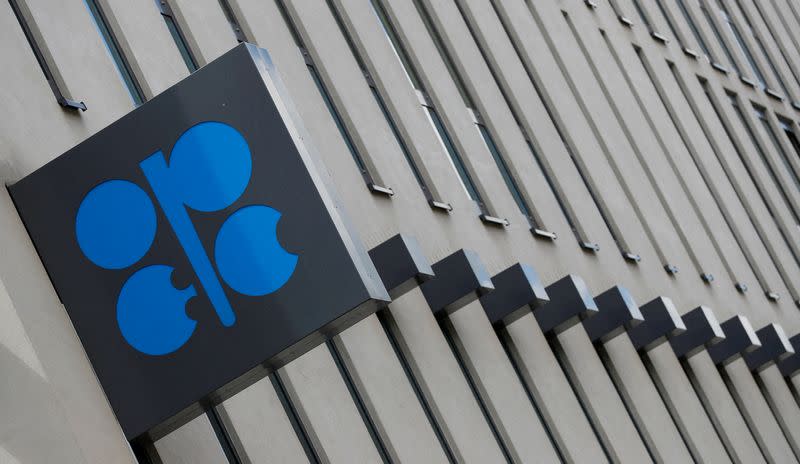DUBAI/LONDON/RIYADH -Saudi Arabia and other OPEC+ states agreed to bring forward oil production rises to offset Russian output losses to ease surging oil prices and inflation and smooth the way for an ice-breaking visit to Riyadh by U.S. President Joe Biden.

OPEC+ said it had agreed to boost output by 648,000 barrels per day (bpd) in July – or 0.7% of global demand – and a similar amount in August versus the initial plan to add 432,000 bpd a month over three months until September.
The move will be seen as a sign of willingness by Saudi Arabia and other OPEC Gulf nations to pump more after months of pressure from the West to address global energy shortages worsened by Western sanctions on Russia.
OPEC+, an alliance of the Organization of the Petroleum Exporting Countries and other producing nations, includes Russia, whose output has fallen by about 1 million bpd following Western sanctions on Moscow over its invasion of Ukraine.
U.S. diplomats have worked for weeks on organising Biden’s first visit to Riyadh after two years of strained relations because of disagreements over human rights, the war in Yemen and U.S. weapons supplies to the kingdom.
U.S. intelligence has accused Saudi Crown Prince Mohammed bin Salman, known as MbS, of approving the 2018 killing of Saudi journalist Jamal Khashoggi, a charge the prince denies.
Saudi Arabia and its neighbour the United Arab Emirates have been frustrated at the Biden administration’s opposition to the military campaign in Yemen and failure to address Gulf concerns about Iran’s missile programme and its regional proxies.
With the Ukraine war adding to a tight crude market, the U.S. administration has sought more supplies from Gulf allies such as Saudi Arabia, as well as from Iran whose output has been restricted by U.S. sanctions that could be lifted if a nuclear deal is reached, and Venezuela, also under U.S. sanctions.
BIDEN’S APPROVAL RATINGS
Rocketing gasoline prices have driven U.S. inflation to a 40-year high, hitting Biden’s approval ratings as he approaches mid-term elections. Biden has refused so far to deal with MbS as Saudi Arabia’s de-facto ruler.
A source briefed on the matter said Washington wanted clarity on oil output plans before a potential Biden visit for a summit with Gulf Arab leaders, including MbS, in Riyadh.
A second source familiar with discussions about Biden’s visit said the issue was not only tied to oil production, but also to Gulf security issues and human rights. The source said both Riyadh and Washington had been showing more readiness to listen to the other’s concerns.
The White House said it welcomed Thursday’s decision and recognised the role of Saudi Arabia in achieving OPEC+ consensus.
Western sanctions could reduce production from Russia, the world’s second largest oil exporter, by as much as 2 million to 3 million bpd, according to a range of industry estimates.
Russia was already producing below its OPEC+ target of 10.44 million bpd in April with output running at about 9.3 million bpd.
A Western diplomat said Russia might be ready to agree to other members of OPEC+ to fill a gap in its output to preserve unity in the group and maintain support from the Gulf, which has tended to take a neutral stance over the Ukraine war.
OPEC+ agreed to cut output by a record amount in 2020 when the pandemic hammered demand. By September, when the deal expires, the group will have limited spare capacity to lift output further.
Saudi Arabia is producing 10.5 million bpd and has rarely tested sustained production levels above 11 million bpd. Riyadh says it is working on boosting its nameplate capacity to 13.4 million bpd from the current 12.4 million by 2027.
The only other OPEC state with significant ability to produce more oil is the UAE, although OPEC is estimated to have less than 2 million bpd of spare capacity in total.
Amrita Sen, co-founder of Energy Apsects think-tank, said, the real production boost over July-August would amount to around 560,000 bpd – compared to the scheduled 1.3 million bpd – because most members have already maxed out their production.
“These volumes will barely make a dent to the deficit in the market,” she said.






